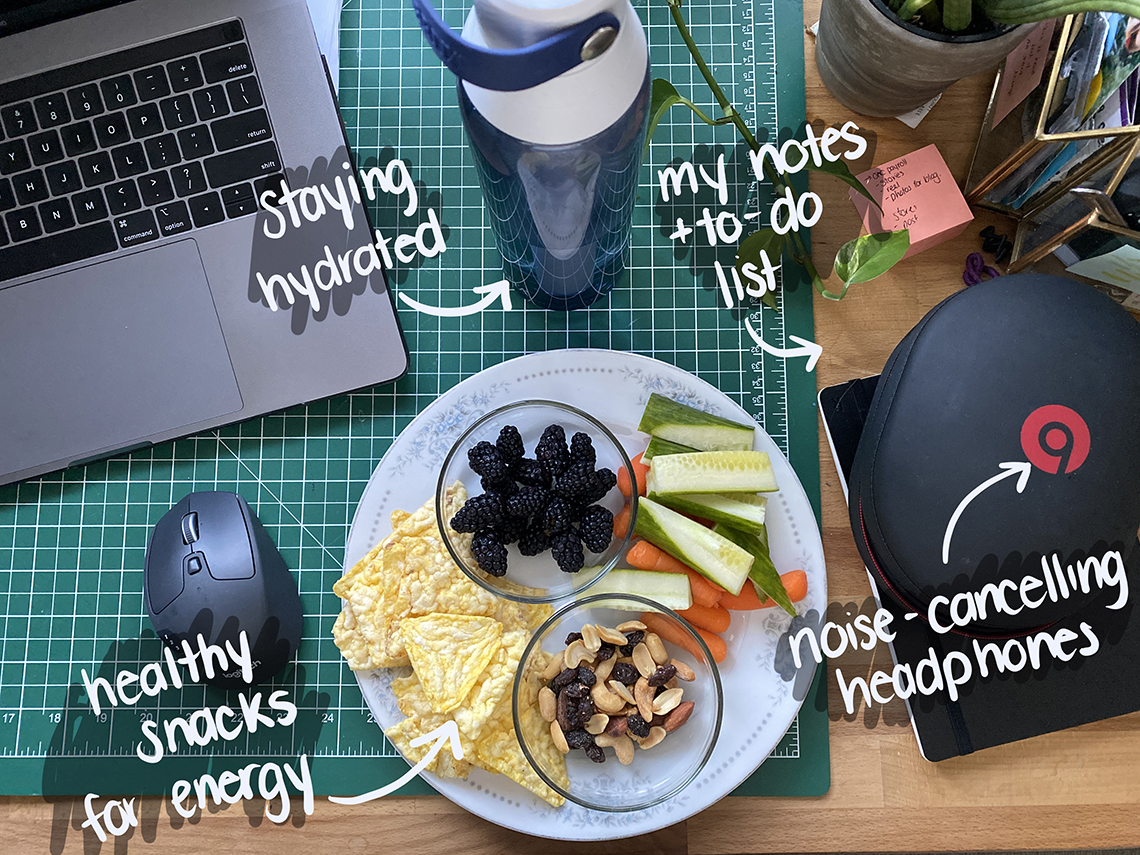How (not) to write an undergrad thesis in 8 weeks

The dos and don’ts of undergrad thesis writing, from someone who had three months to write theirs.
In the Bachelor of Landscape Architecture (BLA) program, students are required to write a thesis in the fall semester of their fourth year. The topic is up to you, and I chose to write about climate change, with a thesis titled “High tides mean high time: Using landscape architecture to facilitate successful climate migration through managed retreat”.
While the BLA theses are not available online, you can search for University of Guelph theses and dissertation examples here. This is a great way to get an idea of a thesis structure and see some good examples of topics.
First, congratulations! You’ve made it far enough in your academic career that you get to write a thesis. While it is a daunting task, it also means that you’re smart, and you have ideas and knowledge to share!
A thesis is often the culmination of years of hard work and knowledge acquired throughout your studies. It’s basically a lengthy academic paper that aims to contribute to the body of knowledge on a specific topic or aims to answer a specific research question or hypothesis.
A thesis will range in length depending on the requirements. Typically, an undergraduate thesis is around 10,000 words, a graduate thesis can be around 20,000 words, and a doctorate thesis is around 80 000 words. But this varies largely based on program and university, so be sure to get your word requirement from your advisor.
Step 1) Find an Advisor
The process of finding an advisor will vary from person to person, and from program to program. Some programs have assigned advisors or courses where a professor is assigned to supervise a group of students. In other cases, you will need to find a supervisor on your own.
If you need to find a supervisor yourself, check out my blog on how to email a professor and how to ask for an advisor. It’s important to be professional in these emails. This is the article I used to reach out to graduate school supervisors.
Step 2) Research

- Prepare for lots of reading. There’s no way around it. Grab some coffee and snacks, put on your headphones, and get to it.
- Print off papers if it helps. Then highlight and mark them up and take notes as you go. This may be tedious, but it saves you a ton of time in the long run. I found it helpful to take notes on my computer so I could Command+F different topics.
- Read grey literature publications. Grey literature is material produced by organizations outside of the traditional publishing and distribution channels. It includes reports, working papers, government documents, and evaluations. They are often written in simpler language and can direct you to academic research articles through their citations or authors.
- Learn how to read and skim research articles. Check out this article from the University of Waterloo and Stanford on how to read and understand a research article.
- The U of G Library has a lot of resources that can help you figure out which databases to use when looking for articles. They can also usually get copies of articles that are blocked by paywalls if you ask for help.
- Library Resources:
- Quick tip: If you find a great, relevant article - look in that article’s citations to find more resources and articles.
- Remember to consider the credibility of your sources. Here’s an article by Stevenson University that outlines how to evaluate a source’s quality. https://www.stevenson.edu/online/about-us/news/how-to-identify-reliable-...
Step 3) Make a schedule
- Make a work plan
- A thesis is a huge deliverable. You will want to procrastinate, and you will underestimate how long it will take. Set mini-deadlines to keep yourself accountable - even better if your advisor requires draft submissions or progress reports on a specific timeline. Do what works for you to keep yourself accountable.
- For example, if I had 8 weeks to write my thesis. This is how I would break it down:
- Weeks 1-2: Research and read while developing an outline.
- Weeks 3-4: Writing my 60% draft submission.
- Weeks 5-6: Finalizing my final draft.
- Week 7: Take a break and focus on formatting. This would help me have fresh eyes for final revisions.
- Week 8: Final revisions and editing.
- For example, if I had 8 weeks to write my thesis. This is how I would break it down:
- A thesis is a huge deliverable. You will want to procrastinate, and you will underestimate how long it will take. Set mini-deadlines to keep yourself accountable - even better if your advisor requires draft submissions or progress reports on a specific timeline. Do what works for you to keep yourself accountable.
- And break it down
- One thing that helped me immensely was breaking down the table of contents of my thesis from the beginning. I had a checklist of topics I wanted to cover, and word counts for each section.
- For example, I knew I wanted my literature review to be approximately 5000 words, with 1000 words on history, 3000 words on current research, and 1000 words that linked everything together before I began my analysis chapter. From there, I broke the 3000 words down based on research article.
- For big projects, it can help to schedule time every day. For example, you work on writing for one hour every day. This helps to keep your momentum going, and you avoid having to catch-up on work.
- One thing that helped me immensely was breaking down the table of contents of my thesis from the beginning. I had a checklist of topics I wanted to cover, and word counts for each section.
Step 4) Format, format, format!

Do not leave this to the last minute. Word can be finicky.
- Pro tip: set up your table of contents and list of figures to automatically update using the headings settings. This video shows you how to make a table of contents that works.
- There is a standard format usually provided by your faculty or university. The University of Guelph’s master's thesis format can be found here.
- Preparation of Your Thesis.
- How to Format in Word.
Step 5) Edit and revise.
- Your supervisor probably won't have time to review or edit your entire paper before your final submission. They can provide general feedback on structure and direction, but don’t count on them for an in-depth edit.
- Find a thesis buddy - someone who is also writing a thesis or research paper with a similar timeline. You can keep each other accountable throughout the process, and swap articles for some fresh eyes.
- Take a break - try to finish each draft a few days in advance so you can let it sit for a day or two before doing a thorough read-through. Fresh eyes and some sleep before you try to revise a paper are always good ideas.
- Break it into parts. Think about what you want each section of your paper to say. For example, if you want your literature review chapter to communicate past research, be sure not to include any future predictions or research directions. Be clear and concise, this is not the time for fluffy language to help meet a word count.
Step 6) Submit and celebrate!
CONGRATULATIONS! A thesis or major research paper is a huge accomplishment! Be proud of your hard work and dedication :)
Other Resources to Check Out:
About the blogger: Emma is a recent graduate of the Bachelor of Landscape Architecture program at the University of Guelph. In her fourth year, she completed a thesis and capstone project, while applying to graduate school. She's happy to share her best tips for balancing the challenges of fourth year with minimal loss of sleep, and maximum academic success.
In this series of blog posts, OAC students take us through some of the ups and downs of their journeys at the University of Guelph.